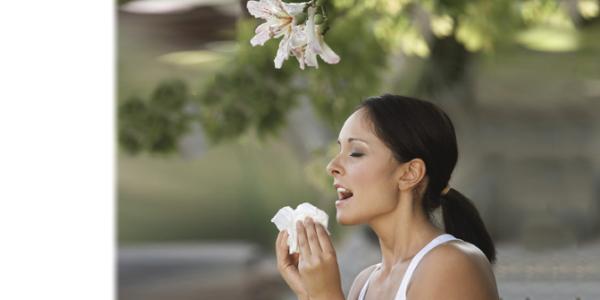
With spring in full bloom and summer on the way, you may be one of the millions of people affected with seasonal allergies each year. And even if you’ve never suffered from allergies before, they can strike at any time.
Allergies are caused by a number of irritants, including pollen, dust mites, mold, animal dander, or tobacco smoke. These allergens trigger your body’s release of histamine, which causes itching, inflammation, and other uncomfortable symptoms that affect your nasal passages, sinuses, and eyelids. You may confuse seasonal allergies for the common cold, as many symptoms are very similar, such as fatigue, sneezing, and a runny or stuffy nose. One sign that your symptoms are most likely caused by allergies is itchy eyes, which is not a symptom of the common cold.
Seasonal allergies can make completing even routine tasks more challenging. However, you can reduce your exposure to airborne irritants and ease the severity of your allergy symptoms by doing the following:
- Pay attention to the weather. Avoid going outside on dry, windy days and in the early morning when pollen counts are at their highest. Look online or in your local newspaper for current pollen levels, and try to plan your time outdoors when the pollen count is low.
- Avoid gardening. Outdoor chores like pulling weeds and mowing the lawn put you at a higher risk of exposure to pollen and other irritants. If possible, pass off these tasks to someone who does not have seasonal allergies.
- Protect your eyes. When you go outside, wear sunglasses to shield your eyes and reduce the amount of pollen that comes in contact with them.
- Leave pollen outside. Change your clothes and shower when you come inside to remove any pollen from your hair and skin. If you have a dog, you may consider rinsing him off as well. Avoid hanging your laundry outside, as pollen can cling to your sheets and towels.
- Keep indoor air clean. Use a portable air filter in your bedroom, and make sure to regularly vacuum your carpets to get rid of any irritants that come inside.
Even with preventative measures, your allergies may still need treatment. For milder cases, an over-the-counter or prescription antihistamine may be all that’s needed. Your doctor may also prescribe a topical nasal spray to reduce the inflammation in the lining of your nose. If your symptoms are more severe, you may need immunotherapy (also known as allergy shots). Allergy shots inject you with very small amounts of the allergy-causing irritant over time, helping your body build up an immunity. This is a more long-term solution, and treatments occur over the period of a few years.
If you suffer from seasonal allergies, you may want to consider further treatment. Talk to your doctor about getting tested, and what treatment options are right for you.
This article first appeared in the April 2017 edition of the HealthPerks newsletter and was updated in May 2025.

